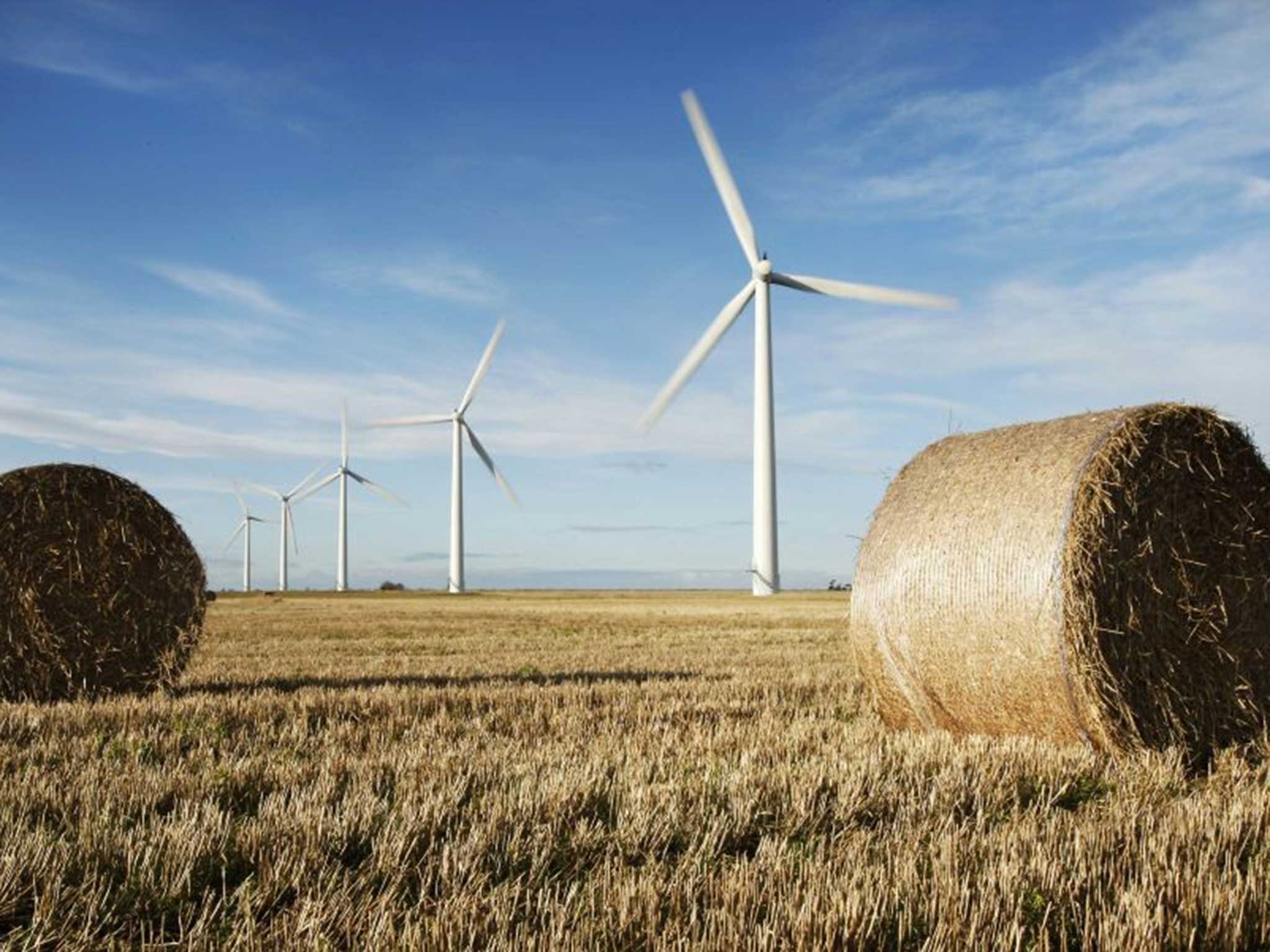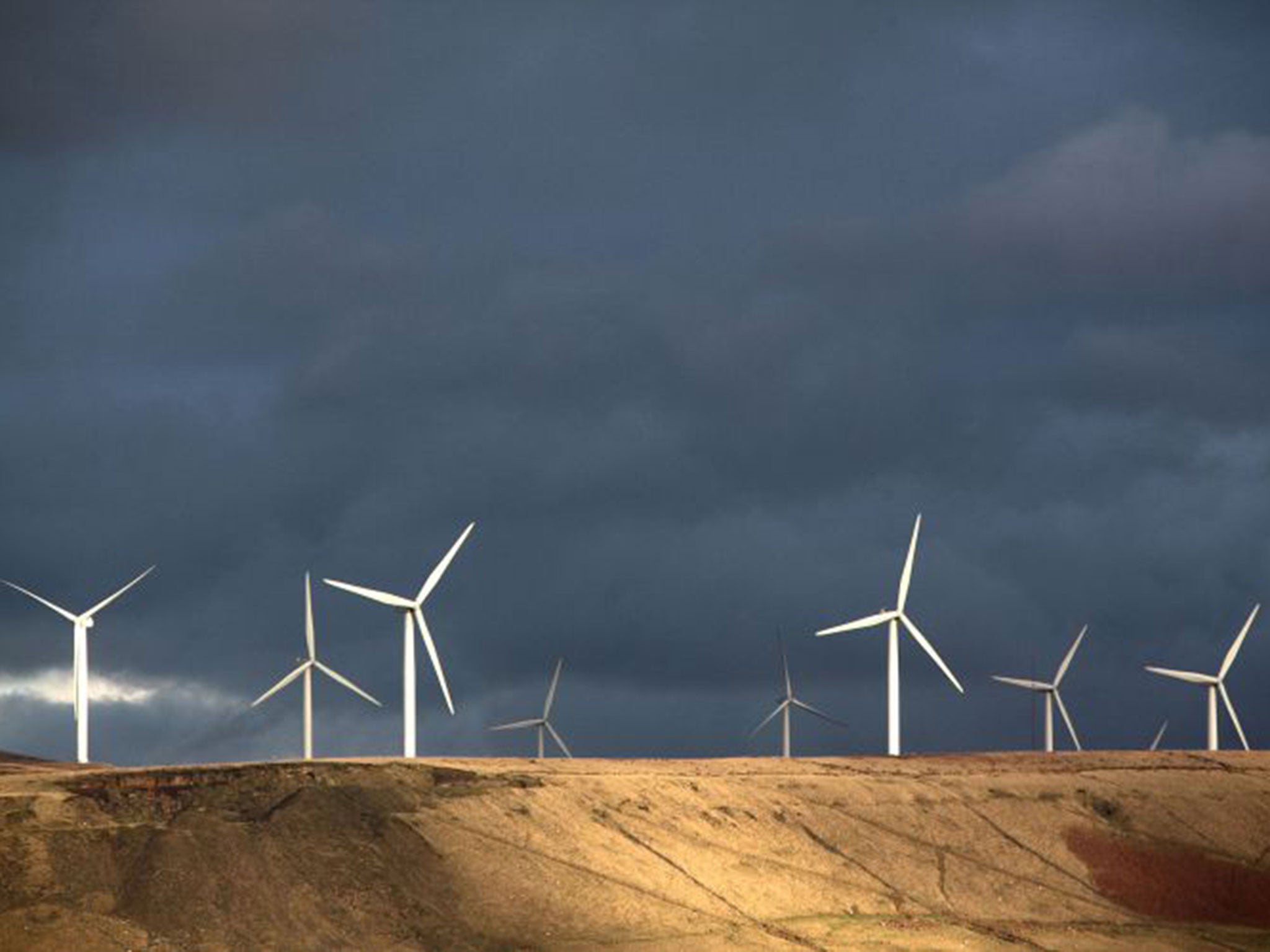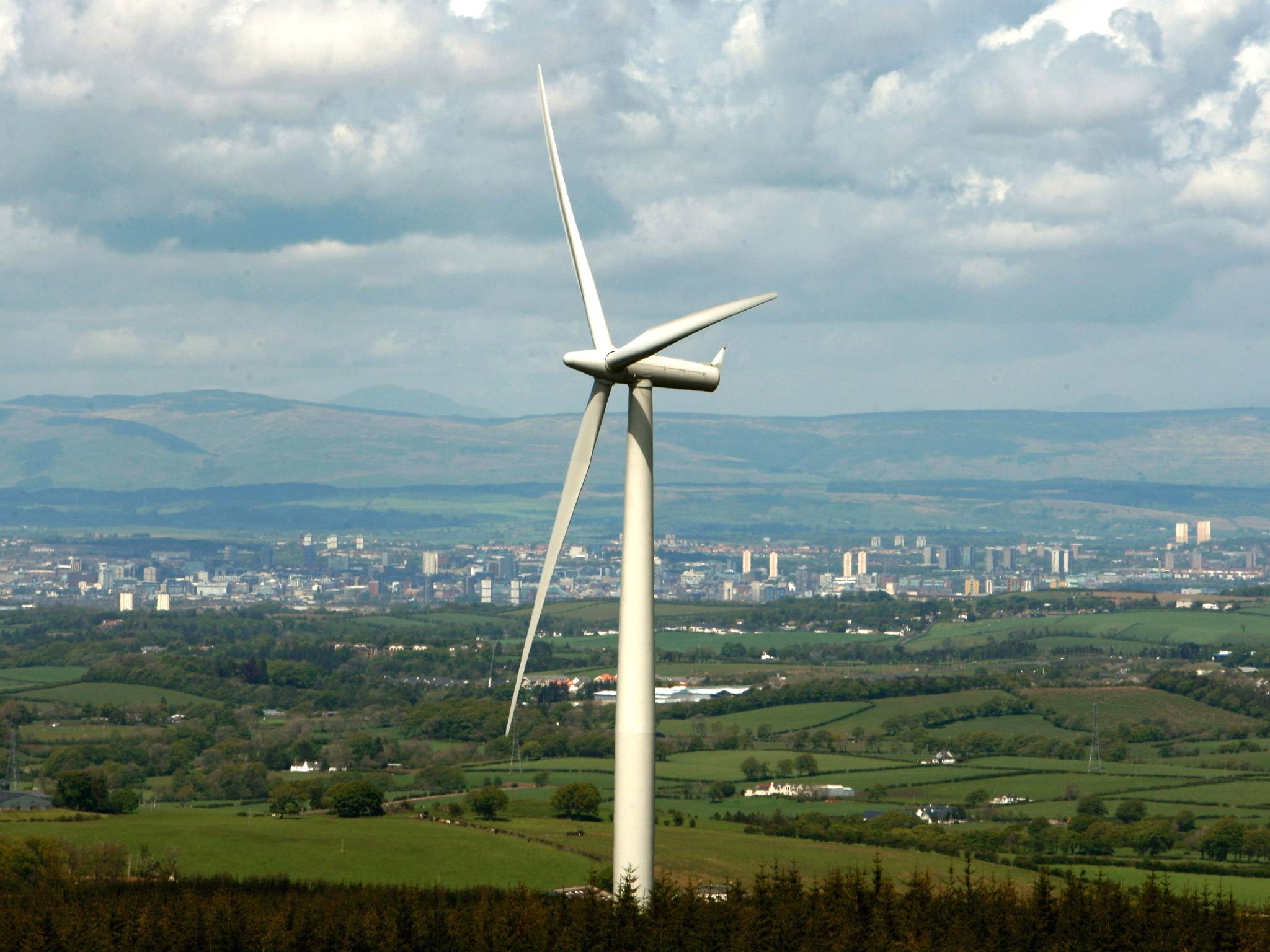Local communities to be offered stakes in wind farms and renewable energy stations
The energy industry has been told to offer more community ownership schemes

Your support helps us to tell the story
From reproductive rights to climate change to Big Tech, The Independent is on the ground when the story is developing. Whether it's investigating the financials of Elon Musk's pro-Trump PAC or producing our latest documentary, 'The A Word', which shines a light on the American women fighting for reproductive rights, we know how important it is to parse out the facts from the messaging.
At such a critical moment in US history, we need reporters on the ground. Your donation allows us to keep sending journalists to speak to both sides of the story.
The Independent is trusted by Americans across the entire political spectrum. And unlike many other quality news outlets, we choose not to lock Americans out of our reporting and analysis with paywalls. We believe quality journalism should be available to everyone, paid for by those who can afford it.
Your support makes all the difference.People living near wind farms and hydroelectric power stations could soon be able to buy stakes in renewable energy projects as part of community ownership schemes.
Edward Davey, the Energy Secretary, is supporting the project by the RenewableUK trade association, saying shared ownership would “revolutionise” the move away from fossil fuels.
“By giving communities the opportunity to buy in and benefit from renewable energy developments in their area, they can play their part in generating power at a local level which could supply enough electricity for 1 million homes by 2020,” he added.
RenewableUK has published its proposals for how shared ownership can be introduced through joint venture, split ownership, shared revenue, bonds or debentures in a project.
A spokesperson for the group said developers working on new renewable projects would consult with local people to gain interest before offering varying stakes of between 5 and 25 per cent.

Supporters believe that increased public involvement could diminish opposition to planning permission and be “mutually beneficial” for developers, energy companies and local people.
The report cited current examples where people have bought stakes in wind farms for just £5, including REG Windpower’s project in Cornwall where people raised £1.5 million for a wind turbine near Liskeard.
Community-owned wind farms are common in Germany and Scandinavia but the first did not come to Britain until Baywind Energy Co-operative formed in 1996.
It has since raised enough money for six turbines in Cumbria with 1,300 investors.

RenewableUK’s chief executive, Maria McCaffery, said: “We’re democratising the benefits of the renewable energy revolution even further, giving people a stake in generating clean electricity at grass roots level.
“It’s clear that local authorities will look more favourably on projects where local people are fully engaged and wholeheartedly supportive.”
RenewableUK’s “shared ownership taskforce” will be reviewing the scheme in six months.
Rebecca Willis, vice chairperson of the group, said there was a “substantial appetite” among local communities to invest in renewable energy.
“That’s increasing as people become more aware of the pressing need to do their bit to tackle climate change, and to generate a secure supply of electricity from clean, local sources,” she added.
Britain is the third lowest producer of renewable energy in the EU, according to a study.
Only 4.2 per cent of its energy is derived from green sources, according to Eurostat, less than a third of the way towards a target of 15 per cent by 2020.
Join our commenting forum
Join thought-provoking conversations, follow other Independent readers and see their replies
Comments